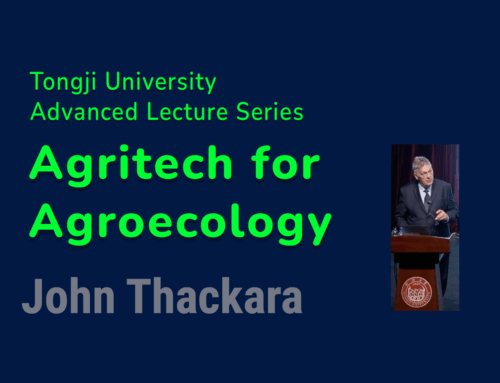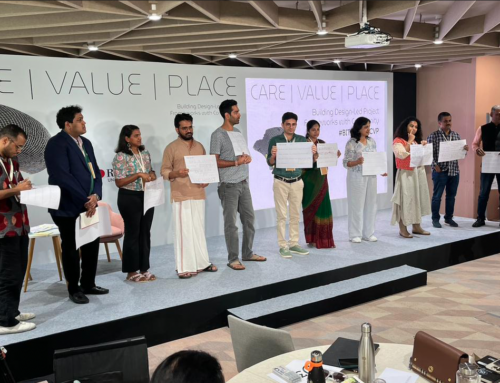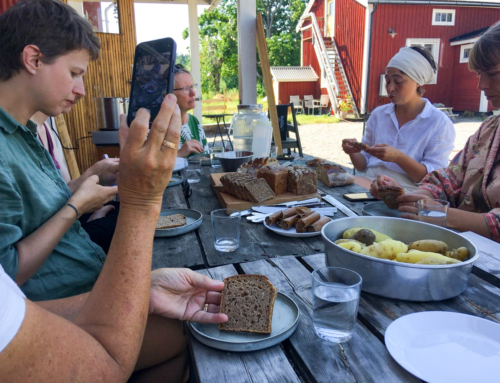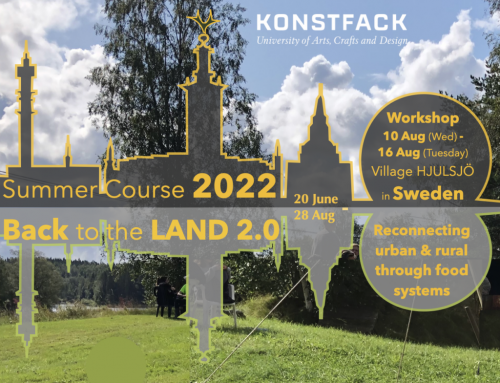If I were a PsyOps specialist at Monsanto, I’d have invented FarmVille. More than 62 million people have signed up to play the Facebook game since it made its debut in June, with 22 million logging on at least once a day. It’s quickly become the most popular application in the history of Facebook.
FarmVille players outnumber actual farmers in the United States by more than 60 to 1, and it would be hard to imagine a better way to distract people from re-localising food in real-life.
“The whole concept of ‘I’m sick of this modern, urban lifestyle, I wish I could just grow plants and vegetables and watch them grow,’ there is something very therapeutic about that,” said Philip Tan, director of the Singapore-M.I.T. Gambit Game Lab.
FarmVille Freak, a blog, has a simpler slogan: “I can’t stop watching my crops!”
I was tempted, at this point, to write about the prospect of real famine in the Society of the Spectacle – but a more important story commands my attention: the publication in the UK of A Transition Food Strategy.
Although the local food movement has been growing strongly for decades, local food remains a small part – around five per cent at best – of the bigger picture in most industrialised countries.
The good news is that plot-by-plot, farmers market by farmers market, the elements of re-localised and de-industrialised food ecologies have been put in place. But in order to scale-up these emergent local food systems, a higher degree of strategy and coordination is necessary at a city-region level
That’s why the publication of A Sustainable Food Strategy for Bristol and Bristol Food Network is so significant.
Its author, Claire Milne, says the purpose of the strategy is “to develop a sustainable and resilient food economy for Bristol based on mutually supportive collaboration between Bristol communities and producers, processors, suppliers in and around Bristol that supports the health and wellbeing of communities and the environment now and in the future”.
The Bristol plan is is based on six strategic work programmes:
1. Reaching wider audiences
2. Increasing sustainable food production for Bristol
3. Developing sustainable food chains providing food for Bristol
4. Developing a sustainable food culture in Bristol schools and early years establishments
5. Influencing decision–makers to support sustainable food systems in and around Bristol
6. Communications to raise awareness about sustainable food and activities in Bristol
To drive this work along, and to coordinate it, a Community Interest Company, provisonally named Bristol Food Network, will be set up to deliver the six core programmes; facilitate links between city stakeholders around the programmes; and to enable community participation in the strategy.
Following the Bristol project, Caire Milne has started on a similar programme in Edinburgh.
In parallel to these initiatives, the Transition Network is piloting a Food Project Database.
There’s also this new book Local Food: How to Make it Happen in Your Communit. by Tamzin Pinkerton and Transition Towns co-founder Rob Hopkins.
These Transition food projects are exciting but, thankfully, are not unique. In Canada, for example, Toronto is the first of the major international cities to boast a Food Policy Council (FPC). The first FPC was started in the US 20 years ago in the city of Knoxville. Today more than 50 US towns and cities now have a similar structure.
FPCs take many forms, but are typically either commissioned by state or local government, or are predominately a grassroots effort. FPCs have been successful at educating officials and the public, shaping public policy, improving coordination between existing programs, and starting new programs.
* * * *
One could go crazy trying to track, and make sense of, the many thousands of food projects out there. My own in-box contains 150 unwritten blog entries just on on food. The trick, i think, is to welcome this diversity as a flowering of what Rob Hopkins calls “surge breakers” (in his new text on Resilience Thinking)
Another trick that works for me, when I’m overwhelmed by input, is to gaze passively at a screen -not at FarmVille, but at the real-life comings and goings on channels like Bright Neighbor TV.






